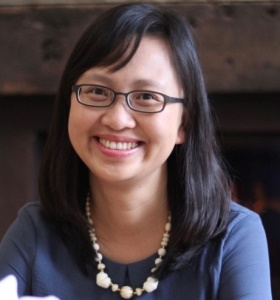Children with unilateral hearing loss (CUHL)
Study background:
The prevalence rate of unilateral hearing loss is estimated to be approximately 0.6 to 1 per 1000 live births. Despite the early detection of congenital unilateral hearing loss (UHL) through universal newborn hearing screening, there is a lack of evidence on the efficacy of early intervention for improving outcomes. The benefit versus harms of early detection and treatment for UHL is also uncertain. While some studies report no significant impact of UHL on developmental outcomes, others suggest negative consequences. As a result, there is clinical equipoise on whether children should receive amplification and surveillance. Further research is needed to determine the short and long-term impact of congenital UHL, the effectiveness of early detection and device fitting on the developmental outcomes of children with UHL, and the factors that may influence these outcomes.
Aims:
This project aims to investigate the impact of unilateral hearing loss on young children; and to determine the effectiveness of device intervention for improving outcomes of children diagnosed with permanent unilateral hearing loss.
Our approach:
The CUHL study is a prospective longitudinal study with a cohort of 191 diagnosed children who were under 12 months of age, and whose families had not yet made a decision on receiving aid, from New South Wales, Queensland, and Victoria. This study follows children from diagnosis at birth to 5 years of age to investigate the impact of UHL and examine the benefit (if any) of device fitting.
Status:
This is an ongoing project. This page will be updated at its conclusion (last updated March 2023). If you are interested in learning more about this project, please reach out to the lead researcher. Click here to visit the CUHL website: https://cuhl.nal.gov.au/.
Team:
• Project team at NAL: Vicky Zhang, Vivienne Marnane, Viji Easwar, Kate Favot, Emi Vella, Lauren Bartlett, Anthea Brueton, Natalie Tat, Sanna Hou, Angela Wong, Chris Flynn, Jane Oliver, Michelle Weiss, Stacey Milner.
• Collaborators: Macquarie University (Linda Cupples, Teresa Ching, Carmen Kung), NextSense (Greg Leigh), Queensland Hearing Health, University of Queensland (Nerina Scarinci, Felipe Retamal-Walter) and HearingCRC (until end of Sep 2019).
Funding Source:
National Institutes of Health (United States) and Australian Government Department of Health (Australia)
Read more on this topic in our publication below:



